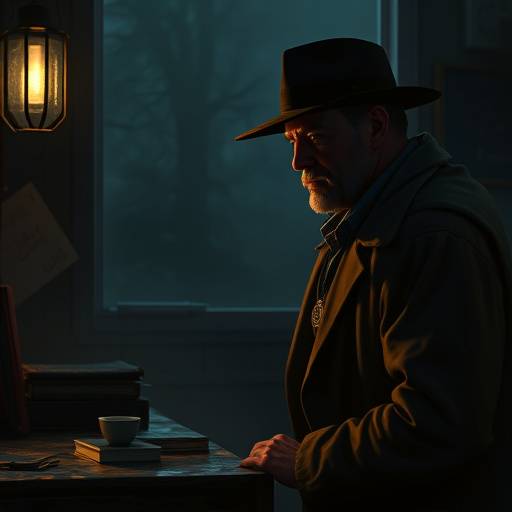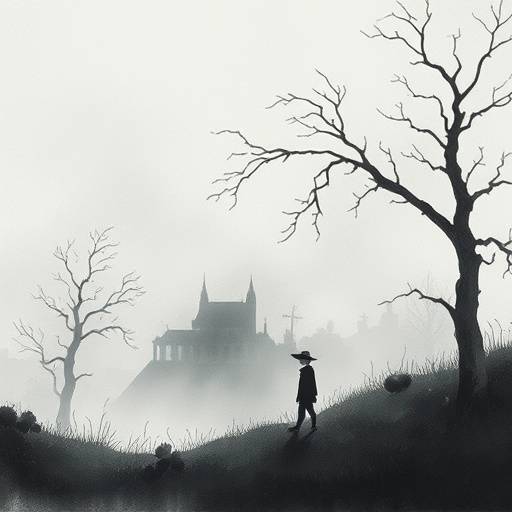Critical Analysis of Video Games as Art
Welcome to the critical analysis section of Pixel Canvas Studios. Here, we delve deep into the artistic and cultural significance of various video games. Our team of analysts, led by Dr. Anya Sharma and art critic Julian Reyes, provide insightful and thought-provoking critiques that explore the narrative depth, visual artistry, and innovative mechanics of selected titles. We believe that video games are a complex and powerful medium that deserves rigorous and thoughtful examination. This page features in-depth analyses of several games, each exploring different aspects of their artistic merit.
Analysis: "The Last Guardian" - A Study in Emotional Connection and Environmental Storytelling
"The Last Guardian," developed by GenDesign and directed by Fumito Ueda, is a game that masterfully employs emotional connection and environmental storytelling to create a deeply moving experience. The game centers around the relationship between a young boy and a massive, griffin-like creature named Trico. The player must navigate treacherous environments and solve puzzles, all while building a bond with Trico.

One of the key artistic achievements of "The Last Guardian" is its ability to evoke genuine emotional responses from the player. Trico's behavior is unpredictable and often frustrating, mirroring the challenges of forming a bond with a wild animal. However, as the player perseveres and learns to understand Trico's needs and desires, a powerful sense of empathy develops. The game's narrative is largely conveyed through non-verbal communication and shared experiences, making the emotional connection between the boy and Trico all the more profound.
Furthermore, the game's environments are meticulously crafted to tell a story of their own. The crumbling ruins and ancient structures hint at a lost civilization, raising questions about the history and purpose of the world. The environmental puzzles require the player to not only utilize their own skills but also to rely on Trico's unique abilities, further reinforcing the theme of interdependence. The visual design is reminiscent of classic art styles, adding a timeless quality to the game's aesthetic.
However, "The Last Guardian" is not without its flaws. Some critics have pointed to the game's technical issues and occasionally clunky controls as detracting from the overall experience. Nevertheless, the game's artistic merit lies in its ability to create a deeply emotional and resonant experience that transcends its technical limitations.
Analysis: "Disco Elysium" - A Deep Dive into Narrative Complexity and Moral Ambiguity
"Disco Elysium," developed by ZA/UM, is a role-playing game that stands out for its incredibly rich narrative, complex characters, and exploration of moral ambiguity. The player takes on the role of a detective suffering from amnesia, tasked with solving a murder in the fictional city of Revachol. The game's unique skill system, which represents different aspects of the protagonist's personality, allows for a highly personalized and unpredictable gameplay experience.

What sets "Disco Elysium" apart is its willingness to tackle complex and challenging themes, such as political ideology, social inequality, and personal identity. The game's writing is sharp, witty, and often deeply philosophical, encouraging players to confront their own beliefs and biases. The characters are flawed and realistic, each with their own motivations and perspectives. There are no easy answers or clear-cut moral choices in "Disco Elysium," forcing players to grapple with the consequences of their actions.
The game's art style, which combines painterly visuals with gritty realism, further enhances its atmospheric and immersive quality. The soundtrack, composed by British Sea Power, perfectly complements the game's tone, adding to the overall sense of melancholy and introspection.
"Disco Elysium" has been praised for its innovative gameplay mechanics and its willingness to break away from traditional RPG conventions. However, some players may find the game's heavy reliance on text and dialogue to be overwhelming. Nevertheless, "Disco Elysium" is a masterpiece of narrative design that demonstrates the potential of video games as a medium for exploring complex and meaningful themes.
Analysis: "Gris" - An Exploration of Grief and Recovery Through Visual Metaphor
"Gris," developed by Nomada Studio, is a platform adventure game that uses visual metaphor and minimalist storytelling to explore the themes of grief, loss, and recovery. The player controls Gris, a young woman who is lost in her own world, grappling with a traumatic experience. As Gris progresses through the game, she gradually regains her color and abilities, symbolizing her journey towards healing.

The game's art style, which is reminiscent of watercolor paintings, is stunningly beautiful and emotionally evocative. Each environment is meticulously crafted to reflect Gris's inner state, with muted colors and fractured landscapes representing her initial despair. As Gris overcomes challenges and regains her strength, the world gradually becomes more vibrant and harmonious.
"Gris" is a game that is best experienced without explicit explanations. Its narrative is conveyed through subtle visual cues, atmospheric music, and the player's own interpretation. The game's puzzles are designed to be intuitive and non-frustrating, allowing players to focus on the emotional journey of the protagonist.
"Gris" has been praised for its artistic merit and its ability to convey complex emotions through visual storytelling. It is a powerful example of how video games can be used as a medium for exploring personal and universal themes.
Analysis: "Kentucky Route Zero" - A Surreal Exploration of Americana and Debt
"Kentucky Route Zero," developed by Cardboard Computer, is an episodic adventure game that presents a surreal and poetic vision of rural America. The game follows Conway, a truck driver making his final delivery for an antique company. As Conway travels along the mysterious Route Zero, he encounters a cast of eccentric characters and becomes entangled in their stories of debt, loss, and community.

"Kentucky Route Zero" is notable for its distinctive visual style, which combines minimalist character designs with richly detailed environments. The game's writing is evocative and lyrical, creating a dreamlike atmosphere that blurs the line between reality and fiction. The game's dialogue options often provide multiple perspectives on a given situation, allowing players to shape the narrative in subtle but meaningful ways.
The game's themes of debt and economic hardship are particularly relevant in contemporary society. "Kentucky Route Zero" explores the impact of these forces on individuals and communities, highlighting the importance of empathy and solidarity.
"Kentucky Route Zero" has been widely praised for its artistic merit and its unique approach to storytelling. It is a game that stays with you long after you finish playing, prompting reflection on the nature of community, loss, and the American Dream.